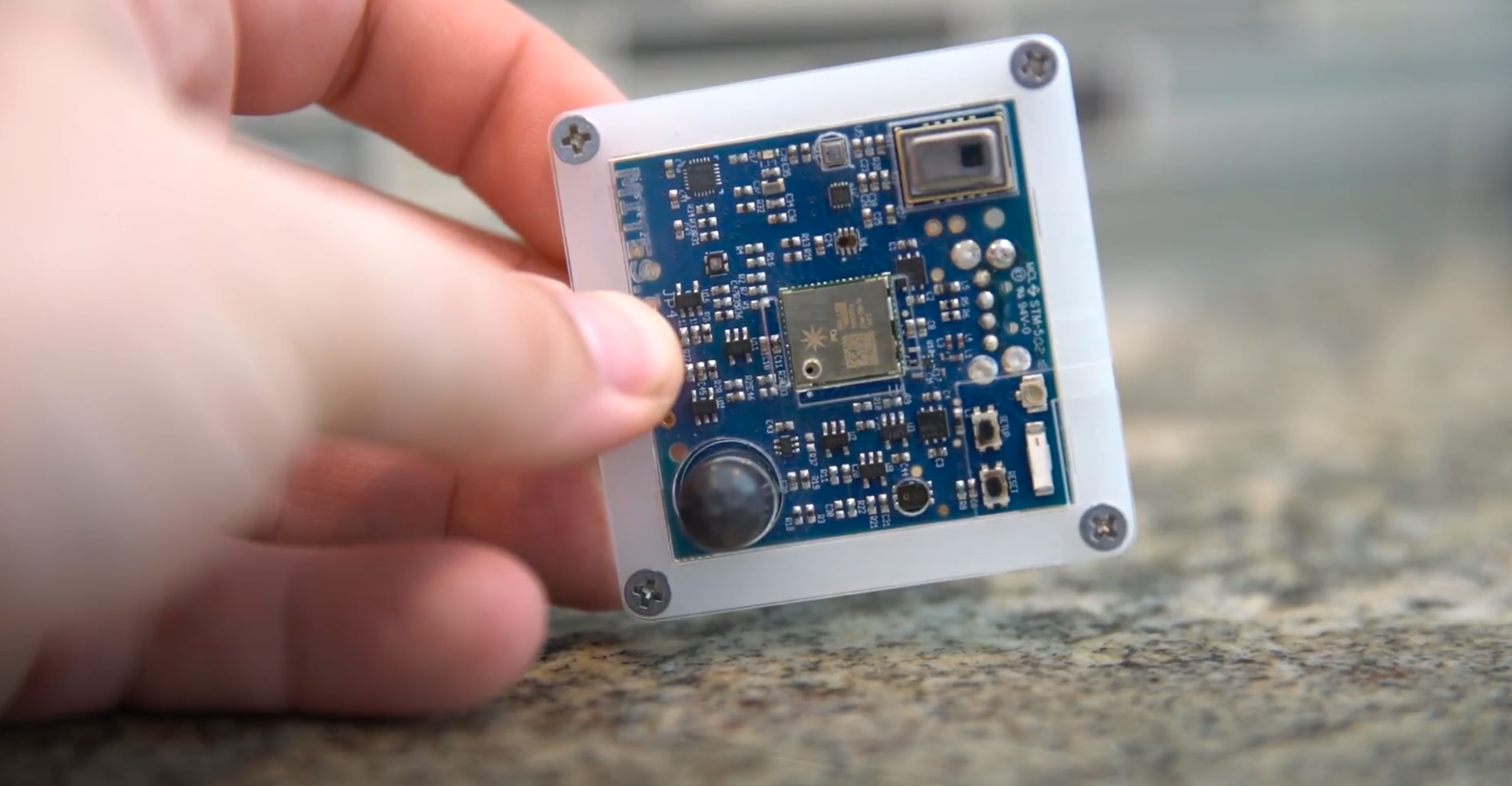A research project to test next-generation building sensors at Carnegie Mellon University provoked intense debate over the privacy implications of widespread deployment of the devices in a new 90,000-sf building.
The light-switch-size devices, called Mites, are capable of measuring 12 types of data, including motion and sound. The sensors were mounted in more than 300 locations throughout the building—on walls and ceilings of hallways, in conference rooms, and in private offices—as part of a research project on smart buildings.
Students and faculty who research the social impacts of technology felt that the device’s microphone, infrared sensor, thermometer, and other sensors, would subject them to experimental surveillance. They objected to the fact that the devices were installed without their explicit consent.
Researchers behind the project had taken steps to anonymize data collected by the building sensors, but that didn’t staunch concerns by building occupants. The project highlights latent mistrust over technologies that can be used as surveillance devices.
“Current IoT systems offer little transparency about exactly what data is being collected, how it is being transmitted, and what security protocols are in place—while erring on the side of over-collection,” according to a report in Technology Review.
Widely reported incidents of smart-home devices such as baby monitors, Google Home and Amazon Alexa speakers, and robot vacuums being hacked or having their data shared without users’ knowledge or consent, complicate the climate for public acceptance of building sensors.
As work continues on the project, how Carnegie Mellon researchers build in privacy safeguards, and how well they communicate those measures to the university community, may be instructive about whether this technology is accepted by the public.







